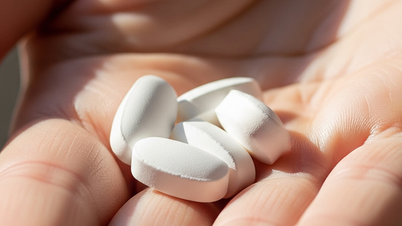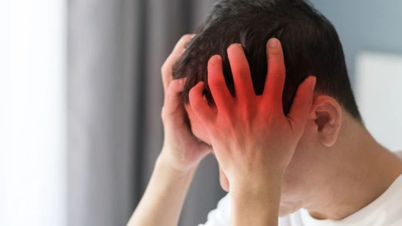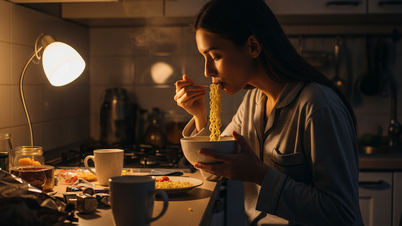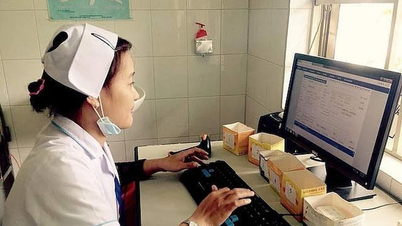Replacing alcohol before bed with a cup of herbal tea can be a simple way to reduce your risk of stroke. (Illustration created by AI) |
Stroke is one of the leading causes of death in the United States, and according to the Centers for Disease Control and Prevention, it's on the rise. Many people may be wondering how to reduce their risk, and part of the answer may lie in your nighttime habits.
“Small, consistent habits we adopt every day can have a significant impact on reducing our risk of many chronic diseases, including heart disease and stroke,” says Simran Malhotra, MD, PhD.
Modifiable risk factors for stroke are things within our control, such as eating a diet rich in fiber from whole foods, exercising regularly, getting enough sleep, and limiting harmful substances like tobacco and alcohol."
In fact, studies show that up to 84% of strokes are related to modifiable lifestyle factors.
Some of that stems from your work habits, but what you do — or don't do — after work can also have a long-term impact on your stroke risk.
Here are four nighttime habits to avoid to reduce your risk of stroke that they recommend:
Late dinner
Eating late at night may be a normal part of your routine, but it can be dangerous for your brain and heart health. Michelle Routhenstein, MD, a registered dietitian specializing in heart health, says:
“Eating late at night can disrupt the body's circadian rhythm and negatively affect blood pressure and metabolism. Over time, these disruptions can increase the risk of cardiovascular problems, including stroke.”
The study found that eating your last meal of the day after 9 pm was associated with a higher risk of stroke than eating an early dinner. A similar increased risk was also associated with eating a late breakfast, suggesting that the timing of both your first and last meals may play a bigger role in stroke risk.
Creating a habit of eating earlier, both in the morning and at night, can support your body's natural rhythms and prevent stroke.
lie on the couch
After dinner, you may want to lie down on the couch to relax in the evening, especially after a busy day. While rest is important, spending too much time relaxing at night can increase your risk of stroke, especially if you have been sitting a lot during the day and even if you are young.
The study found that physically inactive people under 60 who spent more than eight hours a day watching TV, using computers or reading were 3.5 times more likely to have a stroke than those who spent less of their leisure time on sedentary activities.
The good news is that even a small amount of activity can be beneficial. “A 20-minute walk after dinner can help with digestion while optimizing blood sugar control,” says Malhotra. “This can help reduce the risk of prediabetes, diabetes, high blood pressure, and ultimately heart disease and stroke.”
If you're walking to reduce your risk of stroke, increasing your pace may help even more. According to one meta-analysis, increasing your walking speed by one kilometer per hour reduced your stroke risk by 13%.
Have a glass of wine before bed
If your evening routine includes a glass or two of wine, beer or bourbon, you can set yourself up for a stroke without even realizing it. While previous studies have suggested that drinking alcohol may protect against stroke, recent evidence challenges that view.
“Alcohol increases inflammation and causes cell damage,” says Dr. Troy Alexander-El. One of the largest international studies of stroke risk found that moderate and high alcohol intake was associated with a higher risk of stroke.
Even drinking five or more drinks a day just once a month increases a person's risk, so replacing alcohol before bed with a cup of herbal tea or a mocktail can be a simple way to reduce your risk of stroke.
Stay up late
Staying up late to watch TV, scroll through your phone, or work may do more harm than good. “Sleep is a fundamental pillar of longevity and the most underrated lifestyle habit,” says Malhotra.
Research has found that sleeping too much or too little can increase your risk of stroke. However, sleeping too much can be even worse than not sleeping enough.
A meta-analysis found that people who slept five hours or less per night were 33% more likely to have a stroke. However, that risk increased to 71% in people who slept eight hours or more per night.
Since both too little and too much sleep can be problematic, getting eight hours of sleep a night is a good goal. Maintaining a consistent bedtime and wake-up time, even on weekends, can also help, Malhotra says.
Source: https://baoquocte.vn/can-tranh-4-thoi-quen-vao-ban-dem-de-giam-nguy-co-dot-quy-320282.html








































































































Comment (0)